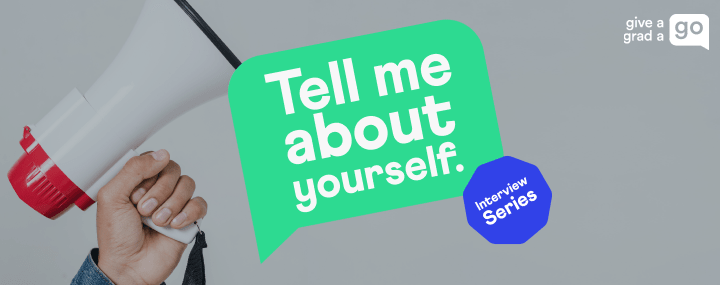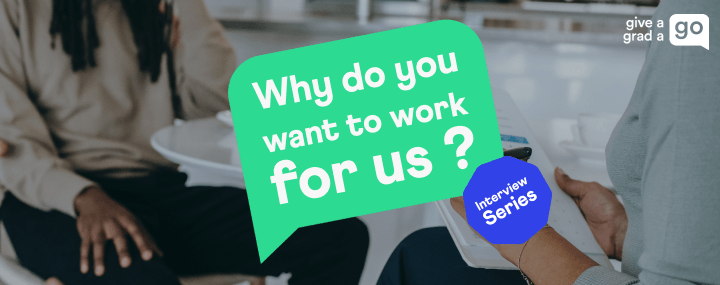Why do employer’s ask “do you have any questions for me?”
There’s nothing worse than drawing a blank in a graduate job interview, so it’s vital that you prepare some questions beforehand.
But in order to decide upon the best questions to ask, it’s important to understand what an employer is actually trying to find out from the questions you ask them…
1. To see whether you are well-suited to the role
An interview is a two-way street that should allow both you and the employer to decide if you are the right fit for the role.
The questions they ask you throughout the interview will allow them to decide whether you would be a good fit – and when the tables are turned it will give you the opportunity to find out if you think you will be well-suited, too.
The type of interview questions you ask the employer will reveal a lot about the aspects of the role you are interested in – so whether you ask about the demands of the role, the company culture, or where they see the job progressing, it will allow both of you to assess whether or not you are the right person for the job.
Check out our recent blog for tips on what things to look for in a company.
2. To see if you have researched the company
If you don’t have any interview questions to ask the employer, or you ask a series of very generic questions, it will indicate that you don’t know a whole lot about the company.
On the contrary, asking an employer fantastic interview questions can be a great way to show off how well you have researched the company.
If you have done your research and you know about what the company do, their core values and a few of their clients, this will come across in the kind of interview questions you ask.
Top tip: If you have the chance, drop in things you already know about their business – try leading with ‘I saw on your website that… and I wanted to ask about…’
3. To see if you are engaged
When employers give you the opportunity to ask questions at the end of an interview, they want to see that you care about the role you have applied for, and that you are eager to impress them.
Sometimes, the questions themselves aren’t as important as the fact that you can show real interest in the role – so asking interview questions you genuinely want to know the answer to is a great way to show the employer that you care.
What to avoid when answering ‘do you have any questions for me?’
-
Not having any questions prepared
Not having any interview questions to ask an employer is a huge red flag – because it indicates that you either don’t care about the job, or that you failed to properly prepare for the interview.
You should always have a minimum of 4 or 5 ready to go, in case the interviewer asks ‘do you have any questions for me?’.
If you think up a great question during the course of the interview then go ahead and ask it, but having a few prepared beforehand will leave you with enough to ask even if some are already addressed.
Plus, having a few questions in your locker will ensure that you feel fully prepared – and give you the confidence to ace your interview.
For more tips on how to prepare for an interview, take a look at our job interview checklist.
-
Asking the wrong questions
Asking presumptuous, overly personal or vague interview questions is a big no-no.
As a general rule, avoid asking interview questions that make you sound like you think you’ve already got the job – like “when can I take time off?” or “where will I be sitting?”
Also make sure you avoid anything that makes you sound as if you’re disinterested in the role or haven’t done your research – like “what does the company do?” or “what is your job?”
-
Not listening to their answer
It seems like asking an interview question should be a lot easier than answering one, doesn’t it? Well in a high-pressure situation, probably not.
When you’re sat in an interview, it’s tempting to take a breather and zone out while the interviewer answers your questions – but it’s really important to try to listen to their answers.
The employer will be able to tell if you are not listening to their answer – plus, if you have asked questions you actually want to know the answer to then you should actually be interested in hearing what they have to say.
Their answers will offer valuable insight into the nature of the job, and you don’t want to end up repeating yourself later on!
It pays to listen and really take in what the employer is saying.
-
Asking too many questions
You don’t want to sound like a robot firing off a long list of questions, and you need to be careful not to ramble in an interview.
Instead, choose 4-6 really good questions that you are genuinely interested in finding out the answer for.
The opportunity to ask questions at the end can be the make or break of your graduate interview – so use it to your advantage and prepare the best questions you can.






